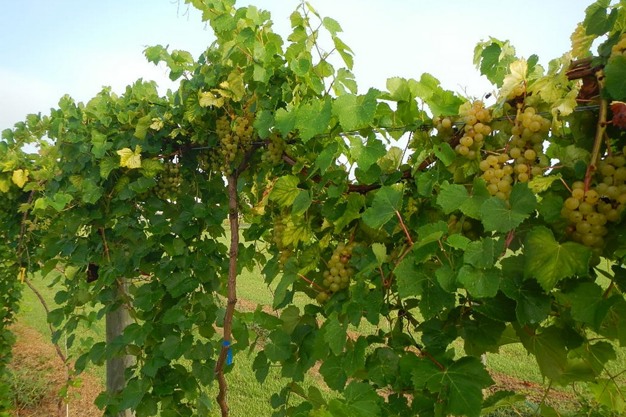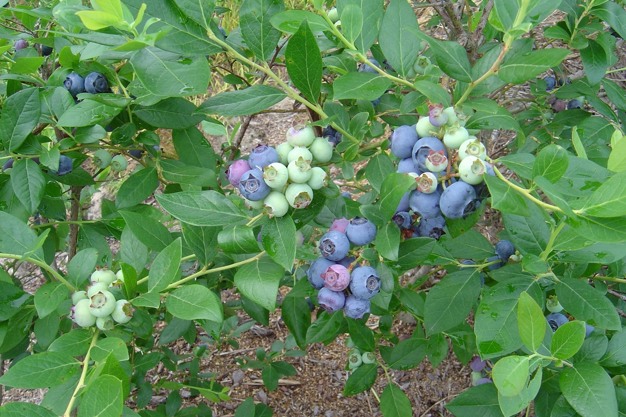Fruit production requires considerable care and effort, and some crops are more demanding than others—something specialists at Mississippi State University (MSU) Extension Service consider in their research and outreach.
MSU conducts ongoing research on various fruit crops. Blueberries are studied at the South Mississippi Branch Experiment Station in Poplarville and the Beaumont Horticultural Unit. Muscadine grapes are researched at Beaumont and the McNeill Research Unit. Additional studies include blackberries, wine grapes, elderberries, passion fruit, and strawberries.

Mississippi’s estimated fruit acreage includes around 800 acres of blueberries, 300 acres each of blackberries and muscadines, and 100 acres of strawberries. Recent blueberry crops have faced challenges from late-season cold snaps and heavy spring rainfall, but this year’s outlook is better. As of March 23, 2025, the U.S. Department of Agriculture reported that 67% of the crop was in good condition, 4% in excellent condition, 26% in fair condition, and 3% rated poor.
Eric Stafne, Extension fruit and nut specialist based in Poplarville, emphasized Mississippi’s suitability for fruit growing, given its long growing season and favorable climate. However, site selection and soil conditions are crucial. Deep, well-drained soil—preferably sandy loam or sandy clay loam—is ideal. Drainage is especially important. Stafne recommends digging a hole 2.5 feet deep and filling it with water. If it drains in 24 hours, it’s suitable for fruit crops. Longer drainage times may limit crop options or require raised beds or containers.
Air movement and sunlight also influence fruit production. Cold air collects in low areas, increasing frost risk, so sloped or elevated sites are better. South-facing slopes encourage early bud development but can lead to frost damage, making late-maturing varieties preferable. Full sunlight is essential, as interior canopy light levels can drop below what’s needed for quality fruit production. Shaded plants are also more prone to disease.

Proper planning is key for new growers. Stafne advises determining what fruits and varieties to grow, securing plants in advance, and ensuring there’s enough labor available—especially for crops requiring intensive management.
Jeff Wilson, an Extension horticulture specialist, said MSU supports the fruit industry statewide. While the southeastern region is the primary production area and is served by Dr. Stafne, other specialists, including Dr. Rebecca Melanson in Raymond, provide support in plant pathology and other fruit-related issues. Extension agents across Mississippi are available to assist growers with research-based advice.
MSU’s commitment to research and outreach helps ensure Mississippi growers have the tools and information they need to succeed.
For more information:
Dr. Eric Stafne
MSU
Tel: +1 662 769 970
Email: [email protected]
www.extension.msstate.edu
Source: The Plantations International Agroforestry Group of Companies
